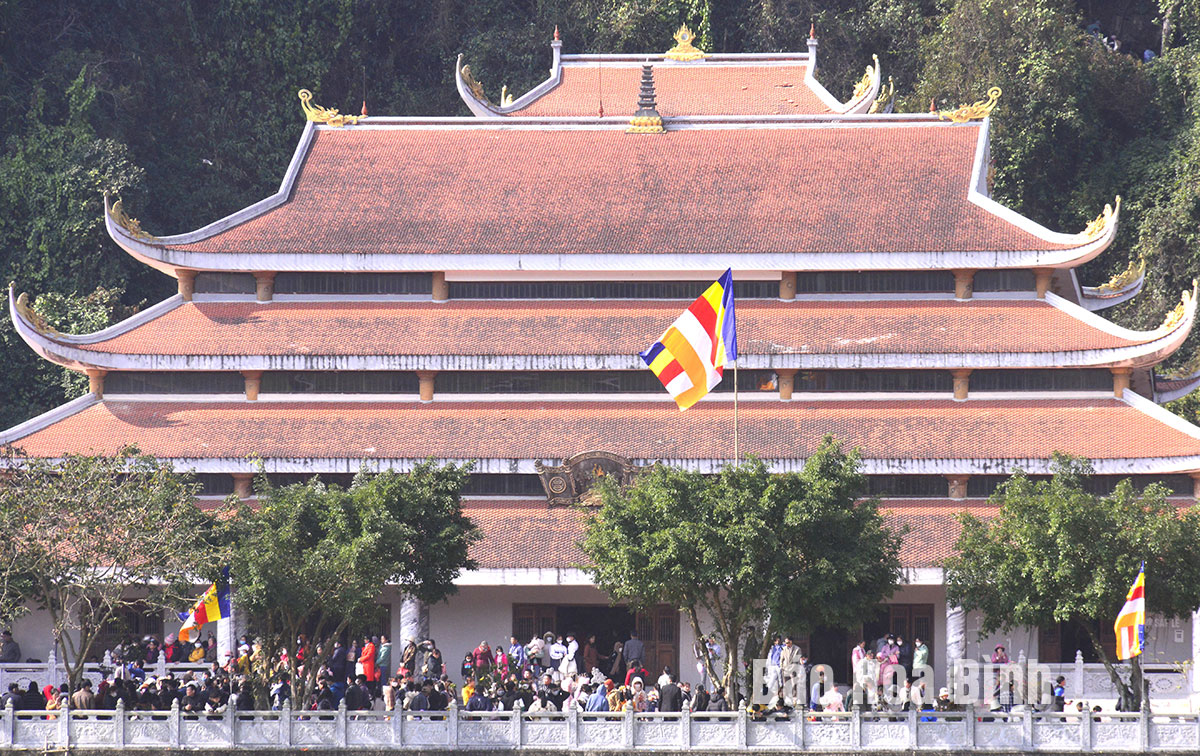Tien Pagoda, situated in the Lao Ngoai hamlet, Phu Nghia commune, Lac Thuy district, annually hosts a traditional festival of the Muong ethnic community. The big event commences on the fourth day of the new lunar year and lasts until the end of the third lunar month.
Tien Pagoda in Phu Nghia commune attracts a large number of visitors for
sightseeing and worship.
The opening ceremony of the Tien Pagoda Festival
serves as a collective celebration for the entire cluster of historical sites
in Phu Nghia. The main event of the festival takes place in the courtyard of
Tien Pagoda, with procession activities starting from four different locations.
The pagoda holds significant historical importance, as it is a place of worship
for the three Gods of Tan Vien Mountain and four Goddesses of the Sea.
The organisation of the festival carries
multiple meanings of expressing gratitude to the deities for their
contributions to the village and the nation, and of seeking blessings for a
prosperous new year with favourable weather and abundant harvests. It provides
an opportunity for the people to express their gratitude and reverence towards
the deities, while satisfying the cultural and spiritual needs of both local
residents and visitors from near and far.
As a native of Lac Thuy, Luong Thi Xuan, now a
resident of Thai Binh ward in Hoa Binh City, goes to the festival every year.
She said it features distinctive ceremonies of solemn rituals, festive
atmosphere, and various traditional Muong folk games such as tug-of-war,
stick-pushing, Con ball throwing, gong art performances, and folk songs.
In recent years, the province and district have
shown keen interest in preserving and promoting the value of the festival.
Since 2005, it has been organised with restored traditional rituals and
procedures. According to the Department of Culture, Sports, and Tourism, the
Tien Pagoda historical site is currently the best-preserved and utilised
location in the province.
Nguyen Van Hai, Chairman of the Lac Thuy
People's Committee said in 2024, the festival will be held on a provincial
scale, including such key activities as an opening ceremony, cultural exchange
programmes, traditional ethnic sports competitions, and a spring fair with
around 20 booths.



